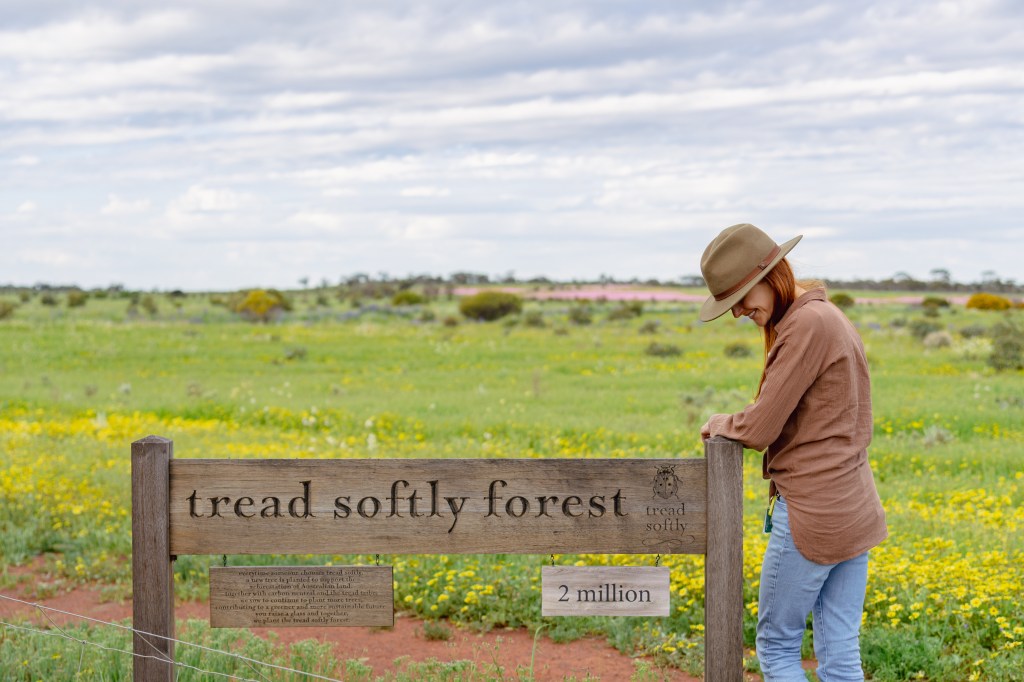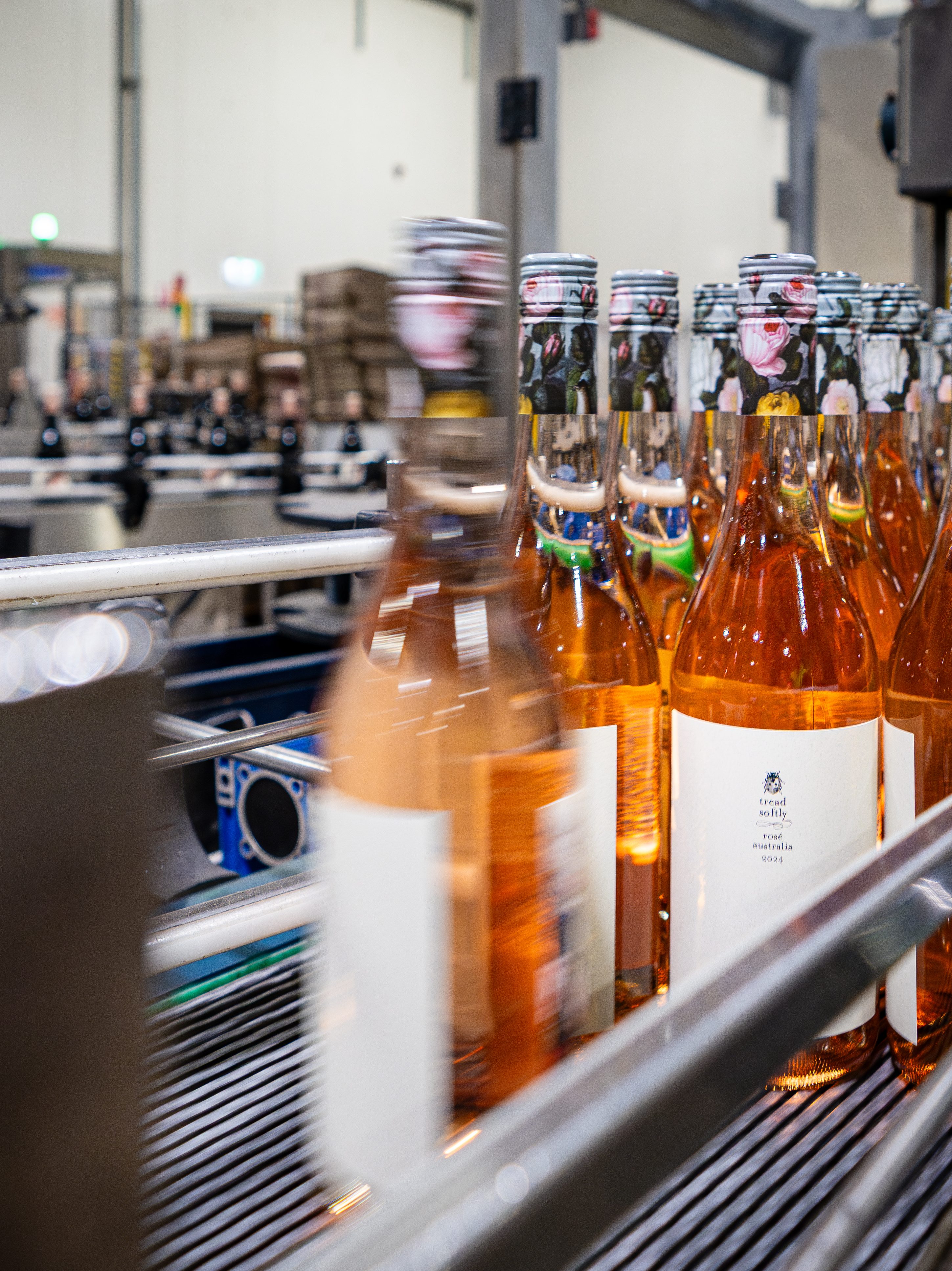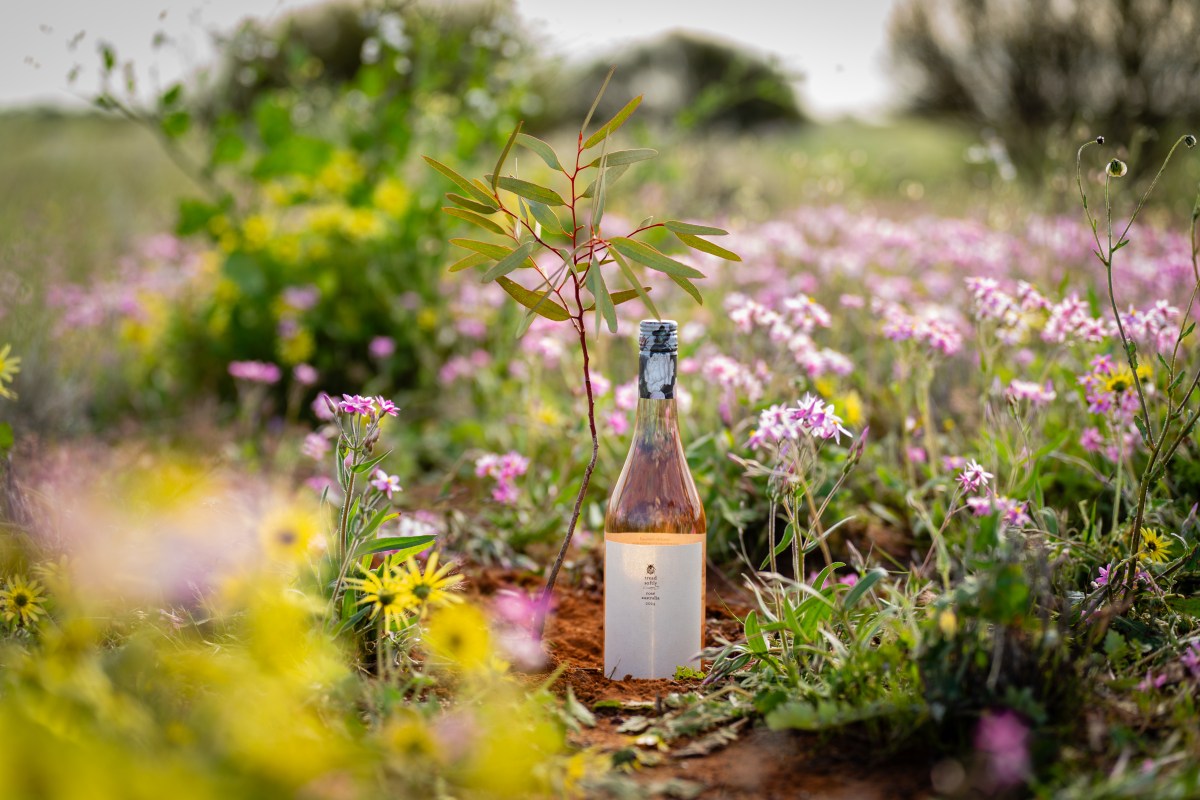Sustainability has always been a priority for Fourth Wave Wine brand Tread Softly, crafting wines that are environmentally conscious with Sustainable Winegrowing Australia accreditation. Born from a desire to expand its sustainability initiatives and contribute to a greater cause, the winery is also heavily invested in a critical restoration project.
With a vision to re-vegetate over 387 hectares of the Yarra Yarra biodiversity corridor in Western Australia, Tread Softly joined the Carbon Neutral Planting Programme in 2019, planting one native Australian tree for every six-case of wine sold as part of its Tread Softly Forest initiative.
Tread Softly’s Director Nicholas Crampton told National Liquor News: “Over the last five years we have worked with our partners Carbon Neutral to regenerate Australian bushland that was once cleared for agricultural use.
“We have planted a bio-diverse mix of over 50 species of native trees with the aim to re-establish biodiversity in the area, and the land has seen the return of flora and fauna that has been absent for years.”
With an initial target of planting 100,000 trees, Tread Softly celebrated the planting of its two millionth tree last month.
“The planting of the two millionth tree means that over 1200 hectares of land has been regenerated, sequestering 125,000 tonnes of Co2e from the atmosphere, the equivalent of taking 35,000 cars off the road; and we are still growing,” says Crampton.
Having well exceeded its original tree planting target, the winemaker plans to plant a whole lot more, and the commitment to minimising environmental impact doesn’t stop there.
“There are huge numbers of people around the world who share the Tread Softly values and we plan to introduce the brand to them – we already sell in England, Canada, USA, New Zealand and Asia.
“Growing the brand globally will allow us to plant a lot more trees and we also hope to support regenerative missions around the world, planting trees where we can and creating a global Tread Softly Forest.”

While such initiatives are important to the brand, Crampton also highlights the significance of sustainable winemaking.
“All of our Tread Softly wines are sustainably certified, meaning that they come from sustainably managed vineyards and wineries. The sustainability certification process ensures a framework for capturing and managing the vineyard and winemaking impact on the environment. The framework uses industry benchmarks to help manage and reduce the impact on natural resources, emissions and the environment,” he explained.
Minimising product impact
Having celebrated the two millionth tree milestone, Tread Softly is now making waves in sustainable production and packaging, shifting to 15 per cent lighter, more eco-friendly glass bottles.
Using less material, each bottle is 55 grams lighter, making each pallet 42kg lighter, requiring less fuel in transportation and reducing CO2 emissions in production, helping to reduce the brand’s carbon footprint and minimise overall product impact on the environment.

“Recent developments have allowed us to source glass that is lighter and with an increased recycled component delivering a reduced carbon footprint. It also impacts packing and pallet weights, impacting logistics in a positive way, ensuring our sustainability efforts are evident in all areas of production. There are also new innovations in development that will further support glass production and working with partners that pioneer the sustainability space is important to us,” stated Crampton.
The brand continues to review all aspects of packaging and operations to deliver more sustainability outcomes, and will launch a new initiative in New Zealand in February, introducing locally grown and bottled Sauvignon Blanc and Pinot Gris to reduce transport impacts and feature other renowned regions of wines.
“The same approach is being explored with our international launches and projects, sustainability is at the core of Tread Softly and we will continue to research and innovate so that we can always be doing better for the planet and our consumers,” added Crampton.

